Islamic scholar condemns Iran’s outdated legal system
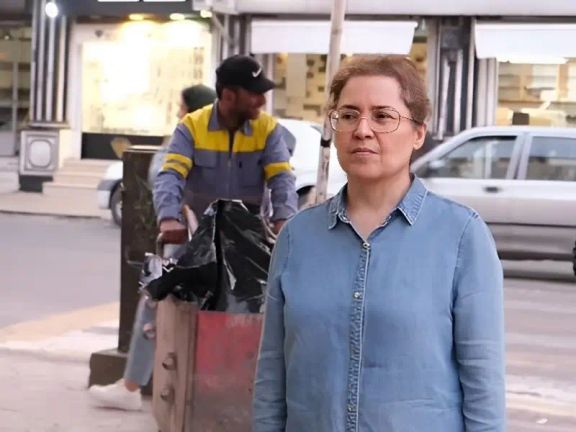
Sedigheh Vasmaghi, an Islamic scholar and religious researcher, has criticized Iran's use of archaic legal terms to issue death sentences for protesters.

Sedigheh Vasmaghi, an Islamic scholar and religious researcher, has criticized Iran's use of archaic legal terms to issue death sentences for protesters.
In a recent audio statement, she said, "The lives of thousands in the Islamic Republic are threatened by terms like 'moharebeh' (waging war against God) and 'ifsad fil-arz' (corruption on earth), which are irrelevant in today's world."
Vasmaghi, who was released from Tehran’s notorious Evin Prison in April, described how the Iranian judiciary exploits vague charges to suppress dissent and protect the government’s interests.
"Thousands have been executed or sentenced to death under the guise of implementing Shia jurisprudence and Islamic law. However, the current usage of these terms and the practices of the Islamic Republic have no historical basis in Islam," she noted.
Amnesty International reported in April that 853 people were executed in Iran in 2023, marking a record high in the last eight years.
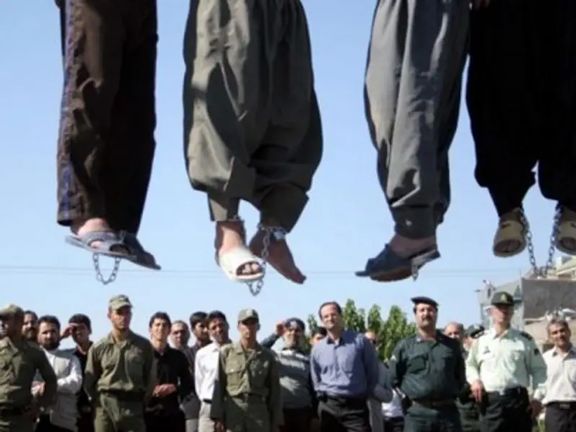
She further criticized the Iranian judiciary's exploitation of vague charges like “propaganda against the system” and “gathering and conspiring against national security”, used to suppress dissent and protect the government's interests.
After being imprisoned in Tehran’s notorious Evin Prison, Vasmaghi's health severely deteriorated, resulting in her release. She lost her sight and suffered life-threatening heart issues due to the harsh conditions of her imprisonment.
Her arrest in March was for criticizing Supreme Leader Ali Khamenei, whom she labeled a dictator, and for condemning the compulsory hijab laws.
Before her release, Vasmaghi wrote to the United Nations Fact-Finding Mission and international human rights organizations detailing the personal abuses and systemic oppression she faced in Iran, particularly targeting women.
In her appeal, Vasmaghi stressed the need to liberate Iranian women from oppressive hijab laws, stating that religious women are not required to cover their hair under Islamic Sharia according to her research.
"Many Iranian women have opposed the mandatory hijab law for decades," she noted, adding that she had removed her headscarf in protest against the oppression of women.
The mandatory hijab has been a focal point in the Women, Life, Freedom movement, which gained momentum after the death of Mahsa Amini in the custody of Iran’s morality police in 2022.
Vasmaghi’s arrest on March 16 occurred while attending the funeral of 16-year-old Armita Geravand, also killed by hijab-enforcement agents in Tehran.
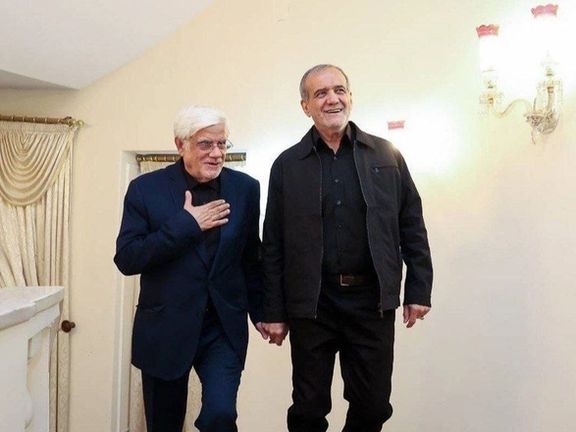
President Masoud Pezeshkian faces criticism for appointing 73-year-old 'reformist' politician Mohammad-Reza Aref as his vice president, despite his promise to form a "young" cabinet.
Pezeshkian announced the appointment shortly after his endorsement by Supreme Leader Ali Khamenei at a ceremony on Sunday. The appointment came as a surprise to many who expected economist Ali Tayebnia’s appointment as VP.
Tayebnia, who played a prominent role in Pezeshkian’s campaign, welcomed Aref’s appointment and stressed that he was not ready to assume the position “for personal reasons”. Given the serious economic situation Iran faces, many expected that the experienced economist would play a pivotal role in the new administration.
Critics say Aref’s appointment is against the promises made by Mohammad-Javad Zarif who Pezeshkian appointed as the head of a “Strategic Council” to vet candidates for cabinet positions. Zarif had stressed that the complex procedure used by the Council’s various committees would ensure a younger and more diverse cabinet.

“It was expected that to fulfill his promises the honorable President would present an agile and energetic person from among those [politically] aligned with him. Appointing Aref, who is three years older than Pezeshkian, despite his [good] personality, does not convey a good message. Hopefully, a young and motivated cabinet will be presented,” former lawmaker Hamid Rasaei, a hardliner, tweeted.
“By choosing Aref, Pezeshkian showed that not only he doesn’t care about [the views of the establishment’s] critics and protesters, but is even indifferent to the opinion of those who voted for him,” reformist Shargh daily’s Hoda Hashemi who called Aref “the most passive political figure” during the crises of the past few years posted on X.
“The mountain gave birth to a mouse,” Reza Khanaki, an entrepreneur strongly critical of the new president, tweeted, drawing on an old Persian proverb. “The outcome of [all the talk about] giving priority to the younger generation, employing new people, …, and listening to people was the appointment of Aref as VP.”
“I have the feeling that Khamenei recommended Aref’s [appointment] as vice president but Pezeshkian tried to hide this by inviting Khatami to the presidential office and public announcement of the meeting,” expatriate dissident journalist and politician Mojtaba Vahedi speculated in a tweet. Former President Mohammad Khatami visited Pezeshkian Friday night, ahead of the news about Aref's appointment.
Vahedi contends that Pezeshkian’s ascendance to the presidency was according to Khamenei’s plan and was meant to “complete his dictatorship and reveal the formality of all government forces including the parliament.”
'Reformist' politicians and media have generally welcomed Aref’s appointment.
Speaking to Khabar Online news website, 'reformist' politician and former Mayor of Tehran Gholamhossein Karbaschi welcomed Pezeshkian’s choice. He argued that Aref’s experience as vice president, his seniority in relation to other cabinet members, and his good relations with both reformists and conservatives make him a good choice for the position.
Unlike in the case of cabinet ministers, Pezeshkian who will be officially inaugurated at the Parliament on Tuesday does not need the Parliament’s approval to appoint his VP and deputies.
Pezeshkian is expected to present his cabinet to the Parliament after his inauguration or later this week for a vote of confidence.
He stressed on Friday that he would discuss his nominees with Khamenei for “final consultation and coordination...total understanding and agreement” when the list of proposed cabinet members is completed.
Zarif said Saturday that at least eight candidates were proposed to the President for most ministerial positions and that investigation of candidates for presidential deputies had not begun yet.
Pezeshkian’s predecessors were also required to discuss their candidates for ministerial positions with Khamenei and get his approval, particularly for several ‘sensitive positions’ including the ministries of intelligence, foreign affairs, Islamic guidance, defense, and interior, before the cabinet was presented to the Parliament.
Pezeshkian is the first Iranian president to inform the public of such a step in the formation of the cabinet. His supporters praise him for being transparent but some among the opposition are accusing him of trying to cast the blame for the possible shortcomings of his government on Khamenei in the future by highlighting his involvement in the selection process.
“Apparently, the shortcomings of Pezeshkian’s government are to be protected from criticism and protest by hiding behind the Supreme Leader,” one of the supporters of the ultra-hardliner Saeed Jalili alleged in a tweet.
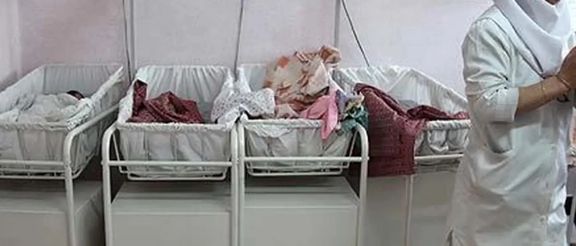
Iran has established anti-abortion centers in 250 cities, preventing 4,700 abortions, according to a Health Ministry official.
In an interview with the Iranian Labor News Agency (ILNA) on Saturday, Saber Jabbari-Farouji, head of Iran’s Health Ministry's Population Youth Department, disclosed that the centers are part of the "Nafas" intervention group.
The group operates in locations frequently visited by pregnant women contemplating abortion and collaborates with the likes of pregnancy diagnosis labs, gynecologists' offices, midwives, general practitioners, and the national health network, including hospitals, to deter a woman considering an abortion.
Supported by the IRGC's Basij organization, it is believed that around 60 percent of women reportedly reconsidering after the interventions.
“In some instances, the mother may not disclose her intention to abort. Instead, the child's father, relatives, or even neighbors might inform us," Jabbari-Farouji said.
"These groups then establish an emotional connection with the mother, investigating the issues she faces. Based on these identified problems, they advise her against terminating the pregnancy."
Observers have likened the Nafas group centers, dubbed “anti-abortion patrols,” to Iran’s hijab enforcement units. In March 2021, the Iranian parliament passed a law banning public health services from offering family planning, including contraceptives, vasectomies, and tubectomies, except when a woman's health is at risk.
In May, 16 human rights organizations condemned Iran’s restrictive sexual and reproductive policies, calling for the repeal of discriminatory laws.
In a joint statement, they said that in the past decade, Iran has intensified efforts to limit women’s fundamental rights, particularly in reproductive autonomy saying the trend "reflects a broader pattern of increasing restrictions on women’s rights". Just recently, the UN branded Iran's policy towards women and girls "gender apartheid".
"Under the guise of addressing declining population growth, the government has introduced discriminatory legislation that severely limits access to essential sexual and reproductive healthcare and family planning services. These measures criminalize healthcare providers and strip women of bodily autonomy, perpetuating systemic discrimination,” the joint statement read.
Abortion in Iran is largely prohibited, with only a few exceptions. Following the Family Protection and Youth Population Law enacted in 2020, abortions require official permits.
According to Article 56 of the Family Protection and Youth Population Law, unauthorized abortions are punishable by fines, imprisonment, and revocation of medical licenses with the coroner’s office responsible for filing cases for those seeking abortions. However, underground abortions are common in Iran as women lack free access to contraception and means of escaping unwanted pregnancy.
Back in 2022, Saleh Ghasemi, head of the Center for Strategic Research on Population, said that "only three percent of abortions [in Iran] are legal, and two percent of abortions are spontaneous." He also said that only four percent of abortions happen due to what he called "illegitimate relations".
The ban on abortion in Iran has made women go to illegal and often unsafe centers to terminate their pregnancies, causing the death of many women and sometimes causing lifetime complications.
Jabbari-Farouji further stated that the main reasons for seeking abortions include unwillingness to have more children, economic hardships, and untimely pregnancies. He noted that 30 percent of abortion permit applicants cited economic hardships as their reason.
Iran has been grappling with inflation exceeding 40 percent annually over the past five years, alongside low wages and a devaluing national currency.
Despite these economic challenges, Iran’s Supreme Leader Ali Khamenei prioritizes increasing the population, viewing it as essential for the Islamic Republic’s position as a leading Shia country in the Muslim world. Khamenei’s emphasis has led to increased coercive measures against contraception and abortion.
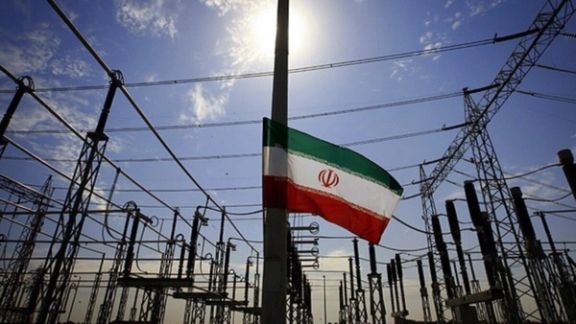
Shortly after Turkey began exporting electricity to Iraq this week, Iran ceased its deliveries to its neighbor due to an increasingly worsening domestic power deficit.
The National Iraqi News Agency cited an official source on July 23, reporting that the country’s Diyala province experienced a massive power outage due to the cessation of Iranian electricity deliveries from both transmission lines for unknown reasons. The report suggests that Iran has stopped supplying 250 megawatts (MW) of electricity, while the region requires 900 MW due to rising temperatures.
The two transmission lines from Iran to Diyala have a combined transmission capacity of 550 MW. However, until July 20, Iran had only been delivering 250 MW to Diyala due to an intensified domestic deficit.
According to Iran's Ministry of Energy statistics archive, the country’s net electricity exports have drastically decreased from 2012 to 2022, indicating a substantial reduction in the surplus of electricity available for export. The country imported about three terawatt-hours (TWh) of electricity from Turkmenistan and Azerbaijan while exporting 4 TWh in 2022, with the majority going to Iraq. This puts Iran’s net electricity export at 1 TWh, which is eight times less than the 2012 level.
Iran's Ministry of Energy halted public access to its statistics in June 2023. However, some Iranian officials have stated that the country’s electricity trade balance has been zero since last summer, meaning that the Islamic Republic has been exporting electricity equal to its imports. It now appears that Iran's summer electricity deficit has reached a point where it cannot sustain its exports at the same level as its imports.
Meanwhile, Turkey's Energy Minister announced on July 22 the commencement of exporting 300 MW of electricity to Iraq. Additionally, since March 2024, Baghdad has begun importing electricity from Jordan. The country is also negotiating deals with Saudi Arabia and Oman to import electricity, though these agreements have not yet been finalized.
In 2023, Turkey launched 2,800 MW of solar and wind power plants. According to the latest statistics from Turkey's Energy Market Regulatory Authority, it added 3,500 MW of new solar and wind farms, as well as 600 MW of hydroelectric capacity, to its power generation during January-May 2024.
Turkey's growth in renewable electricity generation capacity in the first four months of 2024 exceeds more than twice the total electricity generation growth of Iran from all types of power plants over the past year. The country plans to add 7,000 MW of renewables this year.
In contrast, the Iranian government targeted the launch of 2,850 MW of solar and wind power plants last year but only achieved 2% of this goal. Most of Iran's newly launched power plants last year were steam and gas types with efficiencies of only 29% to 33%. This year, Iran faces a summer electricity deficit of 14,000 to 18,000 MW, equivalent to 20% to 25% of the country's electricity demand.
Iraq’s power plants also heavily rely on Iranian gas imports. The Iranian state, however, faces a significant gas deficit in winters and halts gas deliveries to its western neighbor. As a result, Iraq loses 4,000 to 5,000 MW of its electricity generation capacity in winters due to these interruptions.
Though Iraq recently extended a gas import deal with Iran for the next five years, it has been striving to diversify its energy import sources, including importing gas from Turkmenistan through Iran.
Iraq has also set a goal to stop gas flaring by 2028 and achieve energy self-sufficiency by 2030. The country is working to reduce its heavy reliance on Iranian energy supplies, which are subject to sanctions that necessitate the US to issue waivers every four months.
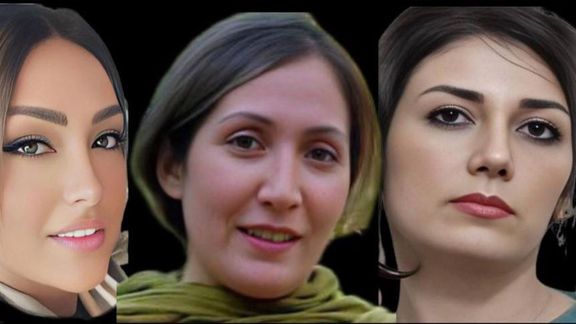
Iranian authorities have accused four women of "armed rebellion", a sentence carrying the death penalty, as the country's execution spree continues.
The four women have been identified as Pakhshan Azizi, Sharifeh Mohammadi, Varisheh Moradi, and Nasim Gholami Simiyari.
While Azizi and Mohammadi have received a death sentence in recent weeks, the verdicts for Moradi and Simiyari are pending. However, given the armed rebellion charges they face, activists have warned that they could be at high risk of execution.
Article 287 of the Islamic Penal Code states that any group taking up arms against the Islamic Republic is considered a rebel and "its members shall be sentenced to death.”
Rights groups, activists, and Evin Prison inmates have condemned the authorities' actions, sparking widespread protests on social media and from human rights organizations against the Islamic Republic's harsh treatment of female activists.
Varisheh Moradi
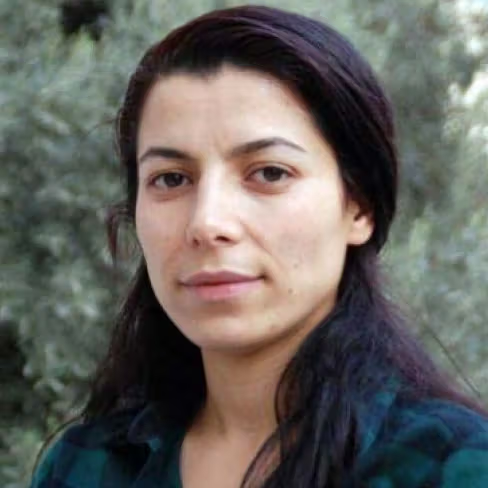
Accordin to Iran International sources, the second court session for Varisheh Moradi on the charge of "armed rebellion" is scheduled for August 4 at Tehran’s Islamic Revolution Court, presided over by Judge Abolqasem Salavati.
This date was set without allowing her lawyers access to review her case. During her first court session on June 13, Salavati, infamously known as the "Judge of Death" for his severe human rights violations and death sentences on dubious charges, did not permit Moradi's lawyers to defend her.
Nasim Gholami Simiyari
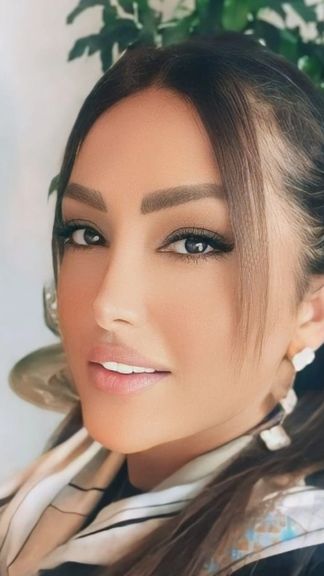
On Saturday, a court session was held for Nasim Gholami Simiyari, a protester of Iran’s 2022 nationwide "Woman Life Freedom" uprising, on the charge of "armed rebellion" in a joint case.
The session took place at Branch 26 of the Tehran Revolutionary Court, presided over by Judge Iman Afshari, notorious for human rights violations. Afshari was sanctioned by the UK in 2022 for being "involved in the commission of serious human rights violations in Iran, namely being responsible for serious violations with respect to the right to a fair trial and the right to freedom of expression of political protesters."
Simiyari is currently detained at Tehran’s Evin prison and awaits a verdict. She was arrested on May 18, 2023, by IRGC intelligence agents in Tehran. Initially held in solitary confinement in Ward 1A, she was interrogated before being moved to the notorious Ward 2A and finally to the women's ward of Evin Prison on September 26, 2023.
After five months, she was charged with "assembly and collusion against national security," "propaganda against the regime," and "armed rebellion" in a joint case. US-based Human Rights Activists News Agency (HRANA) citing Gholami Simiyari’s friend reported that she endured psychological and physical torture, resulting in forced confessions recorded on camera under duress.
Pakhshan Azizi
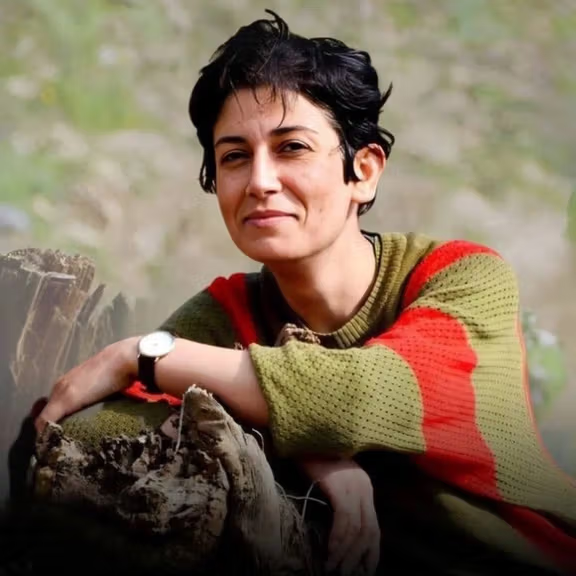
Political prisoner, Pakhshan Azizi was sentenced to death and an additional four years in prison on charges of "armed rebellion." The verdict was handed down by Judge Afshari of Branch 26 of the Tehran Revolutionary Court, with her lawyers being informed of the judgment on July 23.
On Saturday, Norway-based Iran Human Rights urged the International community to demand charges against Pakhshan and all others detained for their peaceful civil activities to be dropped.
“Pakhshan Azizi’s death sentence has no legal basis and was issued by the Islamic Republic’s non-independent judicial system at the behest of the security forces in order to suppress civil movement. The international community must react to her sentence in the strongest terms,” Iran Human Rights Director, Mahmood Amiry-Moghaddam said in a statement.
Sixty female political prisoners at Tehran’s Evin Prison staged an overnight sit-in on Wednesday to protest against Azizi’s death sentence.
The Instagram accounts of Nobel Laureate Narges Mohammadi, Iranian civil rights activist Golrokh Iraee, and German-Iranian rights activist Nahid Taghavi jointly announced that Evin's women unanimously demand the annulment of the Iranian-Kurdish political prisoner's death sentence.
Sharifeh Mohammadi
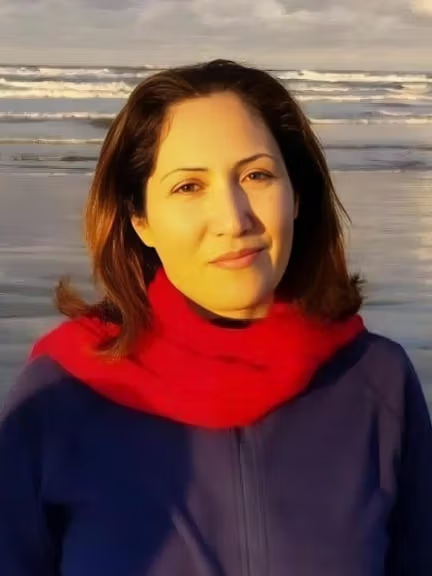
Labor activist Sharifeh Mohammadi was sentenced to death in early July on charges of "armed rebellion" by Judge Ahmad Darvish Goftar of Branch 1 of the Revolutionary Court of Rasht.
The Campaign to Defend Mohammadi stated on Instagram that the sentence is "based on the pretext of Mohammadi's membership in an independent, public, and legal labor organization a decade ago, demonstrating the baselessness of the verdict."
Rights groups and activists have been campaigning against Mohammadi’s death sentence since it was issued in July.
Last year, 834 prisoners were executed in Iran, including at least 22 women, marking the highest number since 2014, according to Iran Human Rights, making Iran the world's leading executioner of women.
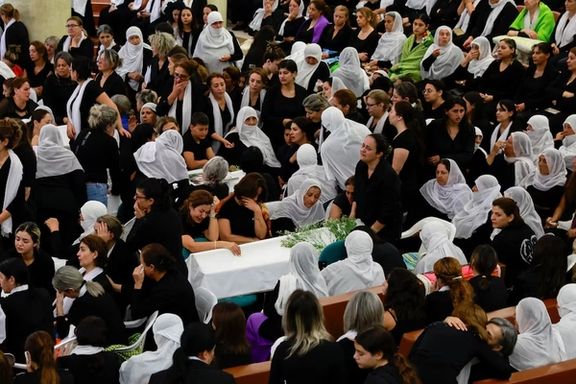
In a vague statement on Sunday, Iran denied any role in a rocket attack that killed 12 children and teenagers on a soccer field in a Druze village in Golan Heights, which Israel says was carried out by Tehran-backed Hezbollah.
Israeli military spokesman Daniel Hagari said on Saturday the rocket used in the deadly attack was an Iranian-made Falaq-1 fired by Hezbollah.
Iran's Foreign Ministry spokesman Nasser Kanaani dismissed the accusations on Sunday, stating, "Israel's statements will not be heeded by others." However, Kanaani did not make it clear whether he means no Iranian rocket was used in the attack or the Iranian proxy group did not fire any munition at the civilian target.
Israel has vowed to respond to the suspected Hezbollah attack, with the country's national broadcaster Kann News citing officials as saying that the Israeli response to the attack "might lead to several days of intense fighting."
The attack has also sparked widespread reactions across the world.
The White House condemned the attack and blamed Hezbollah for it, saying, "It was their rocket, and launched from an area they control." It added that Washington has been in discussions with Israeli and Lebanese officials since Saturday's attack, which it described as "horrific."
US Secretary of State Anthony Blinken also said that all signs point to Hezbollah's involvement, emphasizing Israel’s right to self-defense while stating that the United States does not seek an escalation of regional conflicts. At a press conference in Tokyo, Blinken expressed condolences for the loss of life and reiterated the US stance against terrorism.
“There is no justification for terrorism, period, and every indication is that indeed the rockets were from or the rocket was from Hezbollah. We stand by Israel’s right to defend its citizens from terrorist attacks,” he added.
The Saturday attack has left the community of Majdal Shams in deep mourning. Thousands gathered for the funeral of the victims, marking a day of profound sorrow. At the funeral on Sunday, weeping men wearing traditional, red-topped white hats carried 10 white-covered caskets through the crowded streets. Women dressed in black abaya robes cried as they laid flowers on the caskets, with some mourners carrying large photos of the deceased children.
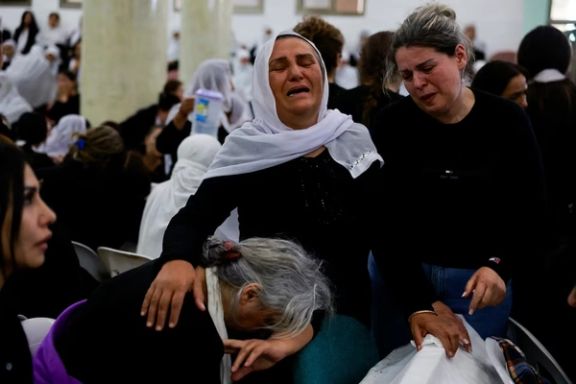
Fadi Mahmud, a 48-year-old resident, in an interview with AFP described the incident as a significant loss for the close-knit community. "It was the first time Majdal Shams had experienced such a loss during the war." "Our community is very close-knit. These children are like children of everybody in the village."
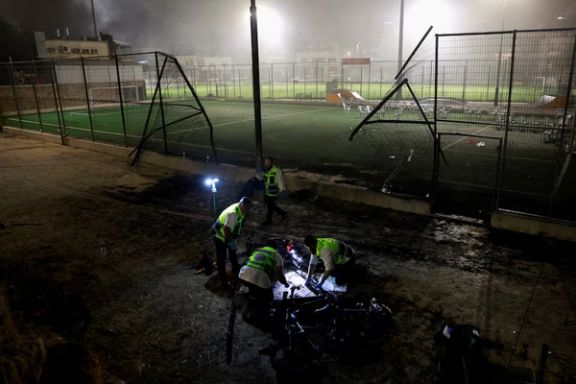
In the early 1980s, Iran established Hezbollah in Lebanon as a proxy force to confront Israel. In 2018, the US government reported that Iran annually provides Hezbollah with an estimated $700 million. Earlier, in a 2016 speech, Hezbollah's leader, Hassan Nasrallah, publicly stated that Iran is the source of his organization’s funding. The financial support bolsters Hezbollah’s substantial military capabilities, including an arsenal of roughly 150,000 missiles and rockets targeted at Israel.
Full-blown Israel-Hezbollah war
The deadly attack blamed on Hezbollah has stoked fears of a full-fledged war between Israel and the Lebanese group, with Lebanon's Middle East Airlines delaying some of its Beirut flight arrivals, and several European countries advising citizens to leave Lebanon.
However, Mohammad Ghaedi, a lecturer in international relations at George Washington University, believes a full-scale war between Israel and Hezbollah is unlikely due to the prohibitive cost.
“Despite the threats being made, my analysis is that we are far from a full-scale war between Israel and Hezbollah for several reasons," Ghaedi told Iran International.
He said the 2006 war between Israel and Lebanon cost around three and a half billion dollars. “Today, an attack on Hezbollah could cost more than 50 billion dollars. Additionally, Hezbollah's enhanced capabilities, including precision missiles, position them to retaliate effectively against Israeli targets.”
According to security sources, Hezbollah has preemptively evacuated several key sites in southern Lebanon and the eastern Bekaa Valley in anticipation of a potential attack by Israel.
Ghaedi believes that Israel will likely conduct limited strikes in response to Hezbollah, aiming to resolve political differences within Israel and seek international condemnation of Hezbollah.
He referred to the rocket used in the attack, allegedly an Iranian-made Falaq, as a central point of tension. “If confirmed, it could prompt small-scale Israeli responses within Iran, following Naftali Bennett’s ‘thousand cuts’ strategy against the Islamic Republic."
The conflict might have broader implications, potentially involving other powers such as the United States and Iran. However, Ghaedi finds it unlikely that Iran-backed forces in Iraq and Syria will enter a conflict under current circumstances.